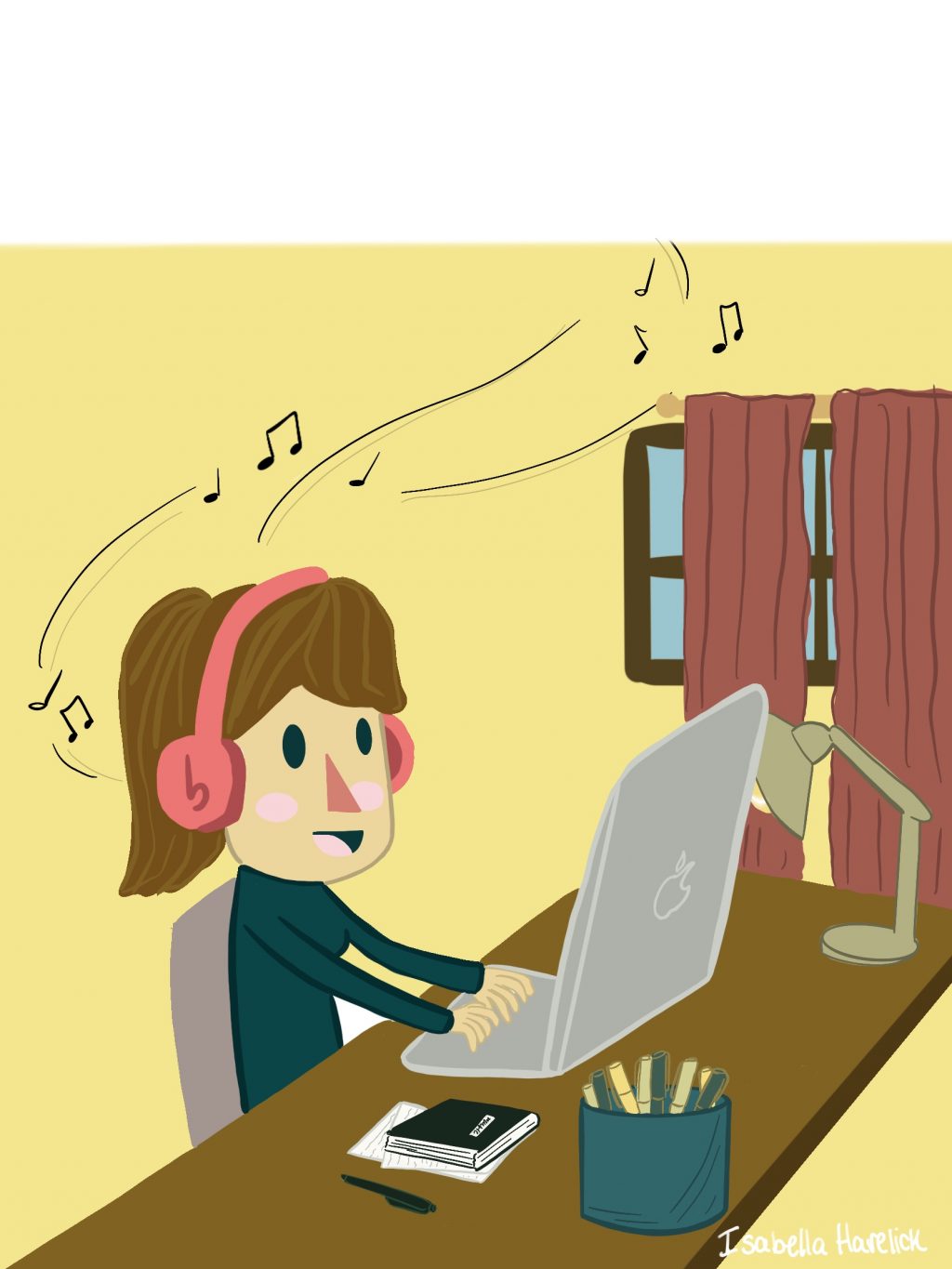Listening to music is a great way to elevate your mood and promote happiness. Research suggests that there are many benefits associated with listening to music during exercise and before going to bed. But what about listening to music while studying? Is it a distraction or an aid?
Opponents say that listening to music while studying may harm your concentration. For example, when you’re trying to memorize things in order like the periodic table of elements, the lyrics in a song may throw you off. An RHS student, Dewey Phillips, agrees that “music just distracts me and it’s hard to focus on certain things like math and reading comprehension. Actually, any external sound distracts me so I don’t listen to music.” If a person were to listen to a song in which the lyrics have been memorized, chances are that bobbing their head and singing along could certainly distract them more.
On the other hand, listening to music can have a tremendously relaxing effect on our minds and bodies, decreasing the levels of stress hormones. Ryan Cho, a sophomore at RHS says that “I do listen to homework when I am studying. It helps me focus because music is something I like listening to which makes homework less annoying.” There are also psychological benefits – music increases gray matter volume in certain areas of the brain. Gray matter is involved in auditory processing, learning, and memory. As a result, listeners often experience improvement in brain functions.
Along the same lines, students may have heard of the phenomenon called the Mozart effect. To describe briefly: for a while, researchers believed that listening to classical music like Mozart increased brain activity and showed that its listeners had significantly better spatial reasoning skills. However, neuroscientist Kiminobu Sugaya and Professor Ayako Yonetani say that this claim is not necessarily true. Rather, it is the individual preference for a particular genre of music that has the greatest effect on brain activity. In other words, different styles can produce the same results – as long as they align with your musical preferences. In this way, it’s the brain’s relationship with favored music that is essential.
In the specific case of reading and writing though, it is important to note that the type of music people listen to while studying can have varying effects. In this situation, listening to music with no lyrics can help eliminate distractions. This type of music isn’t designed to hook listeners as much as modern pop. A popular playlist that many students listen to without words is called, “Lofi Hip-Hop” which is highly recommended when in a deep study session. The music in this playlist focuses on calming beats and repeating sounds that helps students focus while shutting out outside distractions. This type of music allows for learners to listen to music while still being able to direct their attention to their studies. Ultimately, everybody’s music preference is different, but in general, having music as background noise helps you focus rather than distract while studying. USA Today says that “music’s effect on anxiety levels is similar to the effect of getting a massage.” Further supporting the idea that involving music, more specifically calming and relaxing music, can help promote a healthy studying session and focuses students on the task at hand.
Brandon Shintani
Columnist
Graphic: Isabella Harelick

